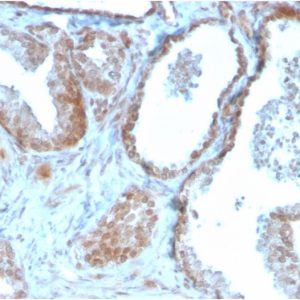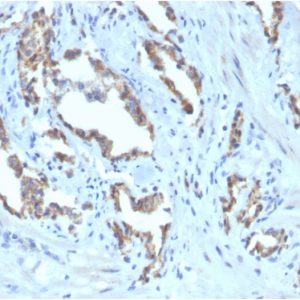Free Shipping in the U.S. for orders over $1000. Shop Now>>

T cell immunoreceptor with Ig and ITIM domains (TIGIT) is a protein associated with the immune system. It is primarily expressed on the surface of various immune cells, including T cells and natural killer (NK) cells. It interacts with its ligands, CD155 (PVR) and CD112 (PVRL2), on antigen-presenting cells, leading to inhibitory signals that contribute to a complex network of immune checkpoints that balance the activation and inhibition of immune cells.
TIGIT has been studied in the context of various diseases, including cancer and autoimmune disorders. This protein can contribute to immune evasion in cancer by inhibiting the activity of cytotoxic T cells and NK cells. In autoimmune conditions, there may be dysregulation of its signaling, affecting the balance of immune responses.
Antibodies against TIGIT are used in research to study its expression levels, distribution, and interactions in different tissues and cells. They are valuable tools for understanding its role in immune regulation and its potential as a target for therapeutic intervention. Notably, antibodies targeting TIGIT, either alone or in combination with other immune checkpoint inhibitors, are being investigated in clinical trials. In this sense, diagnostic applications may involve assessing its expression in tumors to predict responses to immunotherapy.
T-cell immunoreceptor with Ig and ITIM domains, V-set and immunoglobulin domain-containing protein 9, V-set and transmembrane domain-containing protein 3, T-cell immunoreceptor with Ig and ITIM domains; V-set and immunoglobulin domain containing 9 (VSIG9); V-set and transmembrane domain containing 3 (VSTM3); Washington University Cell Adhesion Molecule (WUCAM)
Showing all 4 results

Showing all 4 results




